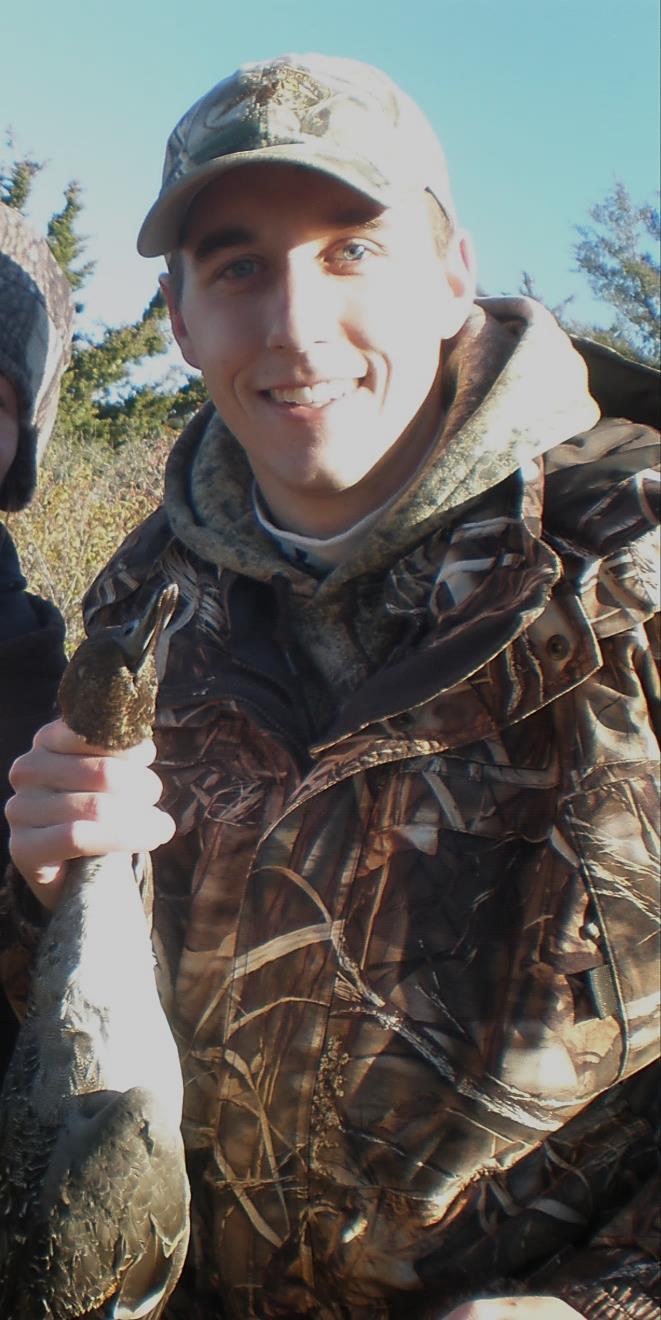
Matt Haugen, graduate student, will defend his master's degree thesis, "The Influence of Regulations on Duck Hunters and Harvest," at 1:30 p.m., Nov. 12 in 901 Hardin Hall.
Haugen's adviser is Larkin Powell. His co-adviser is Mark Vrtiska.
Haugen's thesis abstract: Although regulations, duck hunters, and duck harvest are interconnected, the relationships among them have not been fully explored. I used U.S. Fish and Wildlife Service's Parts Collection Survey to examine both duck harvest and duck hunter behaviors with regards to regulations in the Central Flyway. I first examined what factors best explained the daily variation in harvest distribution across the hunting season for mallards (Anas platyrhynchos), dabbling ducks (Anas spp.), and diving ducks (Aythya spp.).
Secondly, I examined how hunter behaviors were influenced by harvest regulations. Finally, I documented co-occurrence of duck species in the daily bags of hunters, and developed models to predict the effects of daily bag limit changes on both target and non-target species. I found regulation changes may influence the spatial harvest of both dabbling and diving ducks, whereas the distribution of mallard harvest appeared to be influenced more by hunting pressure, water on the landscape, and mallard density. Regulations also influenced select measures of duck hunter behavior (e.g., average daily bag, gender selectivity of mallards).
However, regulations did not differentially affect most duck hunters for the measures of behavior I examined. Co-occurrence results provided insight into the harvest relationships between pairs of ducks species (e.g., redhead [A. americana] were likely harvested with canvasback [A. valisineria]). Co-occurrence relationships allow managers to consider the effects regulatory changes have on non-target species, an important consideration given the aggregate nature of duck harvest. Ducks receive considerable attention from managers in North America, and the Parts Collection Survey contains information that should provide managers with tools and inferences for waterfowl management which account for relationships among regulations, duck hunters, and duck harvest.